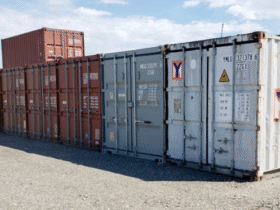The cannabis industry is evolving from a controversial sector into a legitimate business landscape with standardised practices. Among those who have played a pivotal role in this evolution is George Scorsis Florida, whose leadership approach and strategic vision have helped establish new industry operations benchmarks. His contributions have been instrumental in creating a framework that balances commercial interests with community well-being.
Setting new industry benchmarks
The path to reshaping an emerging industry requires more than just business acumen—it demands a comprehensive understanding of complex regulatory environments and public health considerations. When the cannabis sector began its transition toward legitimacy, there was an immediate need for leaders who could navigate these challenges while building scalable business models. This transition period presented unique opportunities to develop standardised operating procedures that would serve as templates for future enterprises. The focus shifted from merely establishing businesses to creating sustainable operations that could withstand regulatory scrutiny and market fluctuations. Many operations in Florida and beyond have since adopted similar approaches, implementing systems prioritising compliance, quality control, and community engagement as core business functions rather than secondary considerations.
Building community trust
The cannabis industry’s relationship with local communities has been historically complicated. Changing this dynamic required leaders willing to:
- Engage directly with community stakeholders to address concerns
- Develop employment opportunities for residents
- Create educational initiatives about responsible use and industry practices
- Establish transparent communication channels with neighbourhood organisations
These efforts have been crucial in transforming public perception and building trust between cannabis operations and the communities they serve. The approach moves beyond simple corporate social responsibility toward genuine community integration.
Operational innovation
What truly distinguishes industry pioneers is their ability to innovate within operational frameworks. This innovation takes many forms:
- Implementing advanced cultivation techniques that maximise yield while minimising environmental impact
- Developing sophisticated tracking systems to ensure product safety and regulatory compliance
- Creating efficient distribution networks that maintain product integrity
- Establishing employee training programs that emphasise both technical skills and ethical considerations
The cannabis sector has seen remarkable advancements in these areas, with companies adopting technologies and methodologies from established industries while developing specialised approaches unique to cannabis cultivation and distribution.
Beyond borders impact
The impact of forward-thinking leadership extends well beyond individual companies or even state boundaries. The operational templates developed by early industry leaders have influenced cannabis businesses across North America, helping to establish consistency in an industry that once varied dramatically from market to market. This standardisation has benefits that reach multiple stakeholders. For consumers, it means more consistent product quality and safety. For regulators, it simplifies oversight and compliance verification.
For communities, it translates to more predictable and professional business operations. These contributions represent more than just commercial success; they mark a fundamental shift in how cannabis operations function within the broader economic and social landscape. The transformation of the cannabis industry continues to unfold, with new challenges and opportunities emerging as markets mature and expand. What remains constant is the need for leadership that combines commercial viability with social consciousness.
The groundwork laid by early industry pioneers provides a foundation upon which future innovations can build, ensuring that cannabis operations continue to evolve in ways that benefit consumers, communities, and the industry itself.









